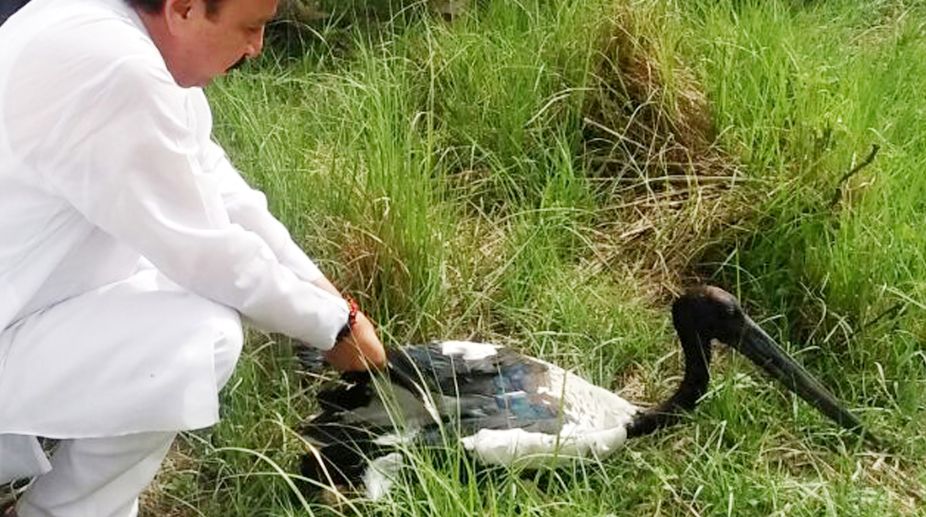Daler Mehndi, Badshah, Neha Kakkar to perform in Gurugram
Daler Mehndi, Neha Kakkar, Badshah, and Gippy Grewal will perform at the Bollywood Music Project 2025 in Gurugram on February 21-22, celebrating Bollywood's diverse music styles.

(Photo: SNS)
This is not the conventional story of the “bundle of joy the stork brings”, but the tale of a different kind of joy that came with the dramatic rescue of a black stork from near starvation in the wetlands that mark the south-western border of the National Capital Territory and its satellite city of Gurugram.
It is a story that debunks the argument that people living in this urban jungle are crass, heartless and what have you. That the concluding part of the tale is scripted in the bird sanctuary at Sultanpur strikes a sentimental chord with this newspaper ~ one of its former editors had a role in the jheel being declared a park in which avian species find protection.
Advertisement
It was on 8 June that wildlife photographers in the Basai wetlands noticed a stork which appeared to have had its beak “caught” in the neck of a plastic bottle and seemed unable to feed itself. That set the alarm bells ringing in the Wildlife Department of the Haryana Government and among volunteer “birders” in Gurugram and Delhi ~ there was the additional apprehension that as the stork turned weak from lack of nourishment it might be attacked by the stray dogs in the vicinity.
Advertisement
As “news” spread a group of birders pooled their human and other resources, expert assistance was sought from the Bombay Natural History Society, and a vigil was mounted. Some experiments were also conducted in trying to trap large birds with poles or lure them into snares. The stork, possibly scared away by unusual human activity, went into virtual hiding and was spotted only occasionally.
It took all of six days for two members of the 24×7 “patrol” to find the bird in the wetlands, it was now on the verge of starvation/exhaustion and could only fly short distances. Still, a two-kilometre chase was necessary to capture the bird ~ it was found that a rubber/plastic ring was what was preventing it from feeding. When that was removed the beak was found filled with mud, it is suspected that it was drinking or trying to feed in very shallow water.
The stork was transported to the Sultanpur park, its beak washed with clean water, and was feeding normally again. It was planned to retain it in an enclosure till it regained enough strength to return to its natural habitat. Had it not been for the dedication of birders and wildlife staff the story of the black stork might not have had a happy ending.
The Statesman angle comes in because it was former editor Evan Charlton, who along with another bird-loving British journalist, Peter Jackson of Reuters, who had spent much time at Sultanpur jheel in the 1960s, and had persuaded Indira Gandhi to have the wetland declared a bird sanctuary. From their perch in the skies Jackson and Charlton must have been guiding the fortunes of the black swan.
Advertisement